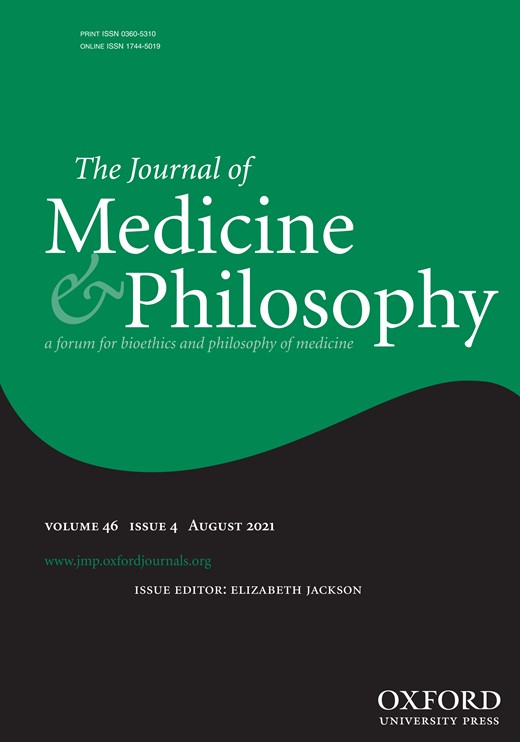-
Views
-
Cite
Cite
Shane Clifton, Disability and the Complexity of Choice in the Ethics of Abortion and Voluntary Euthanasia, The Journal of Medicine and Philosophy: A Forum for Bioethics and Philosophy of Medicine, Volume 46, Issue 4, August 2021, Pages 431–450, https://doi.org/10.1093/jmp/jhab008
Close - Share Icon Share
Abstract
In the polarized debates about abortion and voluntary euthanasia, disability advocates, who normally align with left-wing social forces, have tended to side with conservative and religious voices in expressing concerns about the impact of technological and sociopolitical developments on disabled futures. This paper draws on the social model of disability and the virtue ethics tradition to explain the alignment between the religious and disability perspectives, and the theory of transformative choice to highlight the limits and biases of the pro-choice logic. Yet, it also recognizes the inherent contradiction of disabled advocates taking a paternalistic position against the personal agency of women and people facing terminal illnesses. A disability perspective serves the discussion of abortion and euthanasia as an encouragement to work together for the building of a society that enables people with diverse disabilities to exist and flourish, and helps pregnant women, people facing disabling and terminal illnesses, and politicians and social influencers to make informed choices.



